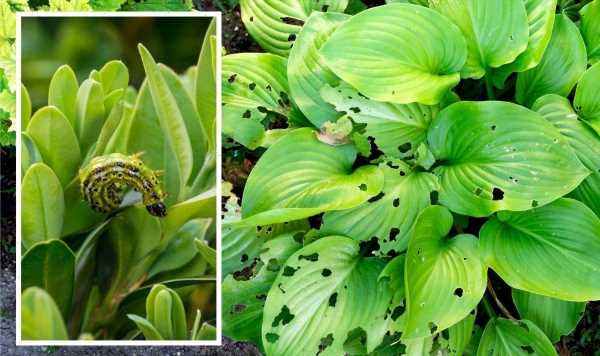Gardening: How to create a watering tool for your plants
We use your sign-up to provide content in ways you’ve consented to and to improve our understanding of you. This may include adverts from us and 3rd parties based on our understanding. You can unsubscribe at any time. More info
Gardeners’ World said it is important to remember that all pests are part of the garden ecosystem and food chain, and that many are an important source of food for birds and other wildlife. However, for gardeners who are experiencing damage to their garden and crops, there are ways to control them.
The experts said: “Slugs and snails are most gardeners’ enemy number one.
“The tender leaves of seedlings and fresh new growth on established garden plants are magnets for molluscs, which make holes in leaves and leave tell-tale trails of slime.
“The good news is, you can control slugs organically.”
Gardeners’ World said those experiencing a slug and snail infestation should make hunting for them part of their evening routine.

They tend to come out in the evening, especially when it is damp and humid.
The experts added: “Also choose slug resistant plants, and you could also make a homemade garlic spray to repel them.”
Slugs also dislike the smell of peppermint and other strong spelling spices.
When it comes to caterpillars, gardeners may notice a complete strip of leaves on certain plants.
DON’T MISS:
Aloe vera: ‘Best tip’ when repotting houseplant [EXPERT]
Upcycling hacks to ‘instantly breathe new life’ into your garden [COMMENT]
Effective methods to ‘eliminate’ lawn weeds including dandelions [EXPLAINER]
Gardeners’ World said: “There’s a new caterpillar on the gardening scene and its target is box plants.
“The box tree caterpillar is fairly new to the UK, and can completely strip a plant of its leaves, killing it.
“The first thing you’re likely to notice is webbing across the leaves, and the box caterpillars feeding within.”
The experts recommended trying to remove the pests by hand.
Mixed nematodes sold to protect fruit and vegetables, and organic insecticides containing pyrethrins may also help to control infestations.
Gardeners’ World added: “If you are happy to use inorganic chemicals in your garden, a system neonicotinoid insecticide can be tried.
“However, the most effective solution is to grow alternatives to box, such as Ilex crenata and yew, and other evergreens, as only box plants are affected.”
Rats can also be a huge problem for gardeners in the UK.

Mixed nematodes sold to protect fruit and vegetables, and organic insecticides containing pyrethrins may also help to control infestations.
Gardeners’ World added: “If you are happy to use inorganic chemicals in your garden, a system neonicotinoid insecticide can be tried.
“However, the most effective solution is to grow alternatives to box, such as Ilex crenata and yew, and other evergreens, as only box plants are affected.”
Rats can also be a huge problem for gardeners in the UK.

They can make homes under decking, in sheds or even in greenhouses.
The first step to try and get rid of them is to prevent access to these places.
The experts said: “Stop feeding birds and other wildlife, as this may be attracting rats.
“Keep your garden tidy, and move things around, placing obstacles in paths they regularly use, as rats don’t like change.”
Greenfly, blackfly and whitefly are abundant in spring and summer, breeding several times.
They are drawn to new tender growth and can be found on most plants.
When they attack in large numbers, plant growth can become distorted and the leaves may curl up.
In severe cases, the plant can also die.
The experts said: “Encouraging beneficial predators, such as ladybirds, lacewings and small birds into your garden, is one of the best ways to get rid of aphids.
“You can also try washing the aphids off or making a homemade soap spray.”
Source: Read Full Article
